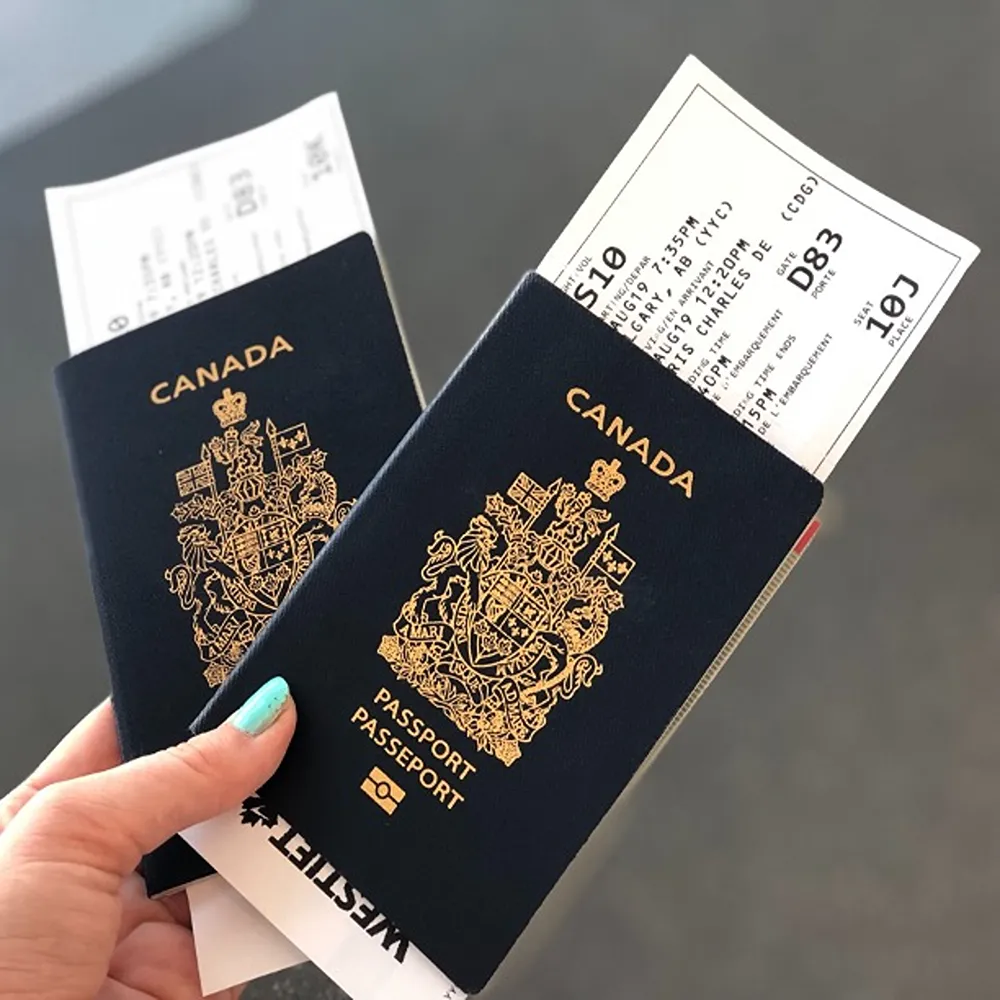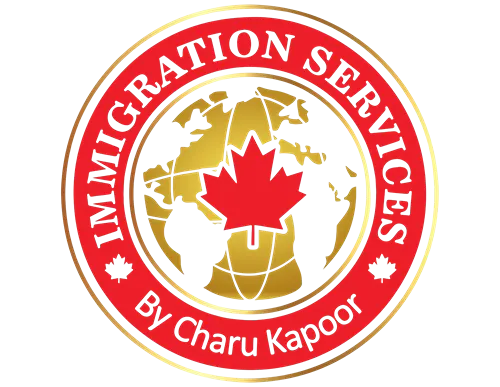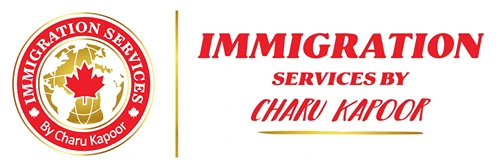Express Entry
Express Entry serves as the fastest and most sought-after pathway for immigrants looking to attain permanent residency in Canada. Renowned for its efficiency, Express Entry has emerged as the preferred choice due to its streamlined process.
In alignment with its commitment to diversity and economic growth, Canada has set a significant objective of welcoming approximately 300,000 economic immigrants annually through the Express Entry system. This aspiration reflects Canada’s dedication to fostering a robust and inclusive society while harnessing the talents of individuals who can contribute to the country’s economic prosperity.
By prioritizing immigrants, Express Entry contributes to Canada’s competitiveness on a global scale, encourages innovation, and bolsters the country’s capacity to thrive in a rapidly changing world.
Express Entry embodies Canada’s commitment to fostering a vibrant and prosperous society by offering a streamlined and efficient pathway for individuals to make Canada their new home.


Discover your Canadian
Immigration Options
What is Express Entry?
Express Entry serves as a pathway to secure permanent residence for skilled individuals in Canada or those located overseas. For potential skilled foreign workers, Express Entry offers the advantage of expedited processing times, often within six months or less.
In the forthcoming three years, Canada has ambitious plans to extend invitations to over 240,000 newcomers through three distinctive streams within the Express Entry framework:
- Federal Skilled Worker (FSW)
- Federal Skilled Trades (FST)
- Canadian Experience Class (CEC)
The Express Entry process entails the submission of an online profile, which is evaluated using Canada’s Comprehensive Ranking System (CRS). To initiate an Express Entry profile, eligibility under one of the aforementioned federal streams is essential. Subsequently, the Canadian government issues invitations to apply for permanent residence to the highest-ranking candidates within the Express Entry pool.
While the Express Entry process stands as a streamlined approach to immigrating to Canada, it’s important to note that meeting the CRS cut-off in the federal draw can be challenging. Nonetheless, simply being part of the candidate pool could lead to a nomination for permanent residence from a province.
Express Entry represents the swiftest route to Canadian immigration. Yet, it’s crucial to recognize that this avenue may not be applicable to everyone seeking immigration to Canada. This guide aims to assist you in determining whether Express Entry is the most suitable avenue for you and your family, if applicable, to establish roots in Canada.
Across the globe, individuals and families can achieve immigration to Canada in a matter of months through the Express Entry selection system. Introduced in 2015, Express Entry has emerged as the primary mechanism driving skilled worker immigration to Canada and stands as one of the most sought-after immigration systems worldwide.
#1 – Federal Skilled Worker (FSW) Program
Operated within the Express Entry system, the Federal Skilled Worker (FSW) program employs the Comprehensive Ranking System (CRS) to assess individuals seeking to establish lasting residency in Canada.
Unlike candidates from the Canadian Experience Class (CEC), Federal Skilled Workers are not obligated to possess Canadian work experience to join the Express Entry pool. Instead, they must meet a specified minimum points threshold, which considers factors including work history, language proficiency, and education. Subsequently, those with the highest CRS scores in the pool will be extended invitations to apply for Canadian permanent residency.
#2 – Federal Skilled Trades (FST)
Operating within the Express Entry system, the Federal Skilled Trades (FST) program is one of the trio of federal immigration avenues. Aligned with all Express Entry programs, FST employs the Comprehensive Ranking System (CRS) to evaluate candidates, pitting them against each other and exclusively inviting the most accomplished individuals to apply for Canadian permanent residency.
Annually, more than half of Canada’s immigrants, specifically skilled workers, find a warm welcome through economic initiatives, including the Federal Skilled Trades program. For adept tradespersons, this program offers an expedited route to securing Canadian permanent residency, alongside the privilege of establishing both residence and employment in Canada on a permanent basis.
To be eligible for the FST program, applicants must possess a minimum of two years’ worth of full-time work experience within a skilled trade (or its equivalent in part-time). This experience must have been garnered within the preceding five years, with consideration limited to periods following the individual’s acquisition of certification to practice their trade in their country of residence.
#3 – Canadian Experience Class (CEC)
The Canadian Experience Class (CEC) program presents an ideal pathway for individuals with recent Canadian work experience who are aspiring for permanent immigration to Canada. This avenue is also renowned for being one of the swiftest routes to Canadian permanent residency, boasting processing times as short as three to four months!
Operated within the Express Entry system, the CEC program harnesses the Comprehensive Ranking System (CRS) to evaluate and rank interested candidates. Invitations to apply for Canadian permanent residence are extended to applicants boasting competitive CRS scores.
To qualify for CEC, an applicant must have accumulated a minimum of 12 months’ worth of full-time (or equivalent part-time) skilled work experience within Canada. This Canadian work experience should have been acquired within the past three years leading up to the application date.
It’s important to note that CEC is not applicable for foreign nationals without recent Canadian work experience.
How can I apply for Express Entry?
The process of applying to Express Entry involves two distinct steps. The initial step entails submitting your profile, which necessitates the following documents:
- Language test results
- Educational credential assessment report
- A passport or travel document
Once you’ve submitted your profile and receive an invitation to apply for Canadian permanent residence, the subsequent phase entails submitting a more comprehensive application. This expanded application includes reference letters, supplementary identity documents, police clearance certificates, and the outcomes of a medical examination.
Who is eligible for Express Entry?
Ideal candidates for Express Entry are individuals possessing university or college degrees, along with skilled work experience and a moderate level of proficiency in English and/or French.
To initiate the process through the Express Entry system, candidates must fulfill the eligibility criteria for one of the three federal programs:
- Federal Skilled Worker (FSW)
- Federal Skilled Trades (FST)
- Canadian Experience Class (CEC)
What are the requirements for Express Entry?
As a skilled worker aiming to apply for Express Entry, the general eligibility criteria include:
- Accumulating a minimum of one year of continuous full-time (or equivalent part-time) work experience in a skilled occupation within the last 10 years.
- Demonstrating proficiency in either English or French through an approved language test, attaining a minimum Canadian Language Benchmark (CLB) score of seven.
- Successfully completing post-secondary education, evaluated against Canadian standards through an Education Credential Assessment.
These prerequisites constitute the baseline for entering Canada’s Express Entry system as a skilled worker. However, fulfilling these requirements does not guarantee an invitation to apply for Canadian permanent residence. Candidates with stronger profiles will consistently be prioritized over those who merely meet the minimum criteria.
How much does Express Entry cost?
Immigrating to Canada through the Express Entry system involves an estimated cost of approximately $2,300 CAD for a single applicant or around $4,500 CAD for a couple. The itemized breakdown of expenses encompasses:
- Language tests: Average cost – $300
- Educational Credential Assessment (ECA): Average cost – $200
- Biometrics: $85 per person
- Government fees: $1,325 per adult & $225 per child
- Medical examination fees: Average cost – $450 per adult & $250 per child
- Police clearance certificates: Average cost – $100 per country
Initial submission of your Express Entry profile doesn’t necessitate any government fees. Charges are incurred only upon receiving an invitation to apply for Canadian permanent residence. Additionally, if you opt for a Provincial Nominee Program (PNP) route, provincial immigration fees might apply.
Moreover, it’s crucial to note that unless you fall under the Canadian Experience Class program or possess a valid arranged employment offer, you must demonstrate sufficient funds to support your resettlement in Canada. These settlement funds are not government fees; rather, they serve as a requirement to obtain a permanent residence visa. The figures below illustrates the required amounts based on family size:
- 1 person: $13,757
- 2 persons: $17,127
- 3 persons: $21,055
- 4 persons: $25,564
- 5 persons: $28,994
- 6 persons: $32,700
- 7 persons: $36,407
- Each additional family member: $3,706
These amounts are applicable as of May 2023.
Do I need a job offer for Express Entry?
A job offer is not a mandatory prerequisite for the Express Entry program. In fact, most candidates chosen through Express Entry are selected without the need for a formal Canadian job offer. The program values a diverse pool of skilled individuals seeking to contribute to Canada’s economy and society.
However, if you possess a legitimate Canadian job offer, it can substantially boost your Comprehensive Ranking System (CRS) score by up to 200 points. This advantage acknowledges the importance of aligning skilled workers with Canadian employers, thereby reinforcing the match between the skills in demand and those being brought to Canada. A valid job offer underscores your commitment to contributing to the Canadian labor market and can significantly enhance your chances of receiving an invitation to apply for Canadian permanent residence.
How long does Express Entry take?
The Express Entry process holds the potential to be completed within a relatively swift timeframe of as little as six months, encompassing the period from submitting your Express Entry profile to receiving a permanent resident visa. It’s important to note, however, that individual cases can vary, and not all applications will follow this expedited timeline.
Your Express Entry profile remains active within the candidate pool for a span of 12 months, even if you don’t receive an immediate invitation to apply. Should the 12-month period conclude without an invitation, you have the option to resubmit your profile and continue to be part of the pool of candidates.
For a more detailed breakdown:
- Your Express Entry profile retains its validity for a duration of 12 months within the Express Entry pool.
- Upon receiving an Invitation to Apply (ITA), you are granted 60 days to provide the comprehensive set of requested application documents.
- Once the immigration authorities receive your complete application, the processing of your permanent resident visa by Immigration, Refugees and Citizenship Canada (IRCC) typically takes around six months.
This timeline offers a glimpse into the various stages of the Express Entry process, illustrating the progression from profile submission to the eventual issuance of a permanent resident visa.

